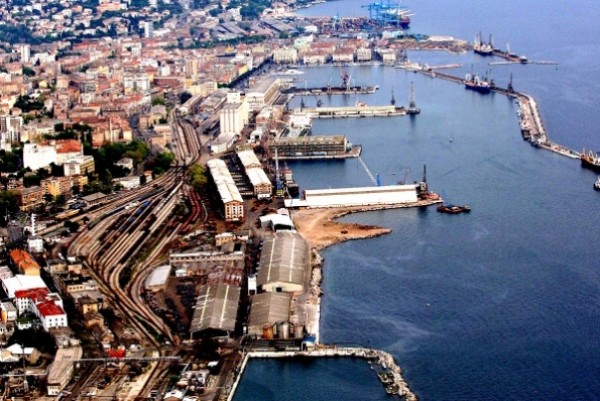| Croatia and China sign bilateral agreements, issue joint Silk Road statement | |

| Author: CSEBA / SEEbiz / Port Europe |
| 15th April 2019 |
| ZAGREB - Croatian Prime Minister Andrej Plenkovic and his Chinese counterpart Li Keqiang have issued a joint statement pledging to increase “new Silk Road” cooperation in transportation, logistics and other areas after they met in Croatia’s capital Zagreb. |
|
The two leaders witnessed the exchange of six bilateral cooperation agreements in agriculture, tourism, technology, sports, and the digital sector. Croatia will also promote the participation of its companies in joint projects with China within the frameworks of the new Silk Road initiative, China-CEEC cooperation and Croatia’s Three Seas Initiative. Li reiterated China’s willingness to develop relations with Croatia under the framework of the European Union (EU) and coordinate Croatia’s development strategies with China’s Belt and Road Initiative so as to forge “diamond-like” bilateral ties. The new Silk Road (part of the Belt and Road initiative – BRI, also known as One Belt, One Road, or OBOR) is a Chinese economic strategy to seek better access for Chinese-made products in European markets, which includes acquiring stakes in ports and other transport facilities, and cooperation agreements with countries along the Silk Road routes. Separately, there have been local reports that China may be interested in helping the Uljanik shipbuilding group, which is facing financial problems and is seeking a strategic investor. Relations between the countries developed when the China Road and Bridge Corporation was chosen as the Pelješac Bridge contractor. Chinese companies are interested in building the Rijeka-Zagreb highway. The Croatia-China agreements follow the signing of an Italian-Chinese state agreement in March on cooperation within the framework of the Silk Road Economic Belt and the 21st Century Maritime Silk Road Initiative. The clear beneficiaries from the Italy-China are the ports of Genoa and Trieste, which both signed commercial agreements with state-owned China Communication Construction Company (CCCC). The state owned COSCO Shipping Ports and China Merchants Port Holdings have acquired stakes in: Port Said, Egypt; Casablanca and Tangier, Morocco; Istanbul, Turkey; Piraeus, Greece; Bilbao and Valencia, Spain; Marseille, Nantes, Le Havre and Dunkirk, France; Antwerp and Bruges, Belgium, Rotterdam, the Netherlands. COSCO and other Chinese companies invest in smaller European seaports and then try to develop them. In the Mediterranean, China now has direct access to ports in Turkey, Greece, Croatian, Italy, France, Spain. Only the small and less important ports in Slovenia and Portugal are missing in this massive operation for ports‘ control in the south of Europe. The port investment spree worries EU leadership and in 2017 European Commission (EC) President Jean-Claude Juncker proposed new investment screening measures for foreign state-owned companies wanting to purchase, or takes financial stakes, European harbours In Q4 2017, the Chinese acquisitions of Noatum Ports Holdings (NPH) in Spain and CSP Zeebrugge Terminal in Belgium were completed. China is the EU (European Union)’s biggest importer and EU’s second-largest export market. China owns 35% of Euromax which runs Rotterdam, Europe’s largest port, 20% of Antwerp’s, the next busiest; and 100% of Zeebrugge, the world’s largest roll-on/roll-off vehicle facility. In 2010, the China Ocean Shipping Co. (COSCO) started buying stakes in the Greek port of Piraeus and began its transformation into China’s main gateway to Europe. In 2016, COSCO, already had control over the port. COSCO, with the world’s fourth-largest container shipping fleet, is leading the charge in Europe. China’s COSCO Shipping Ports Limited operates Piraeus Port Authority SA (PPA) and Piraeus Container Terminal SA (PCT). Its concession agreement for Piraeus port runs until at least 2052. It is now in charge of the container terminal, cruise ship piers and ferry quays. It is expected that the next target for China state owned ports and logistics companies will be the ports in the Black Sea. The Three Seas Initiative (3SI, TSI, I3M), also known as the Baltic, Adriatic, Black seas (BABS) Initiative, is a forum of 12 EU states, located in Central and Eastern Europe. The combined area connects the Adriatic Sea, Baltic Sea, and Black Sea. |